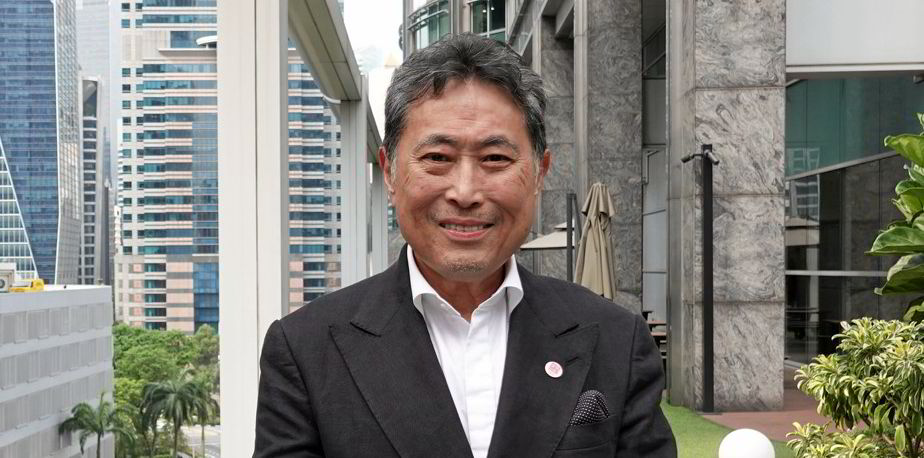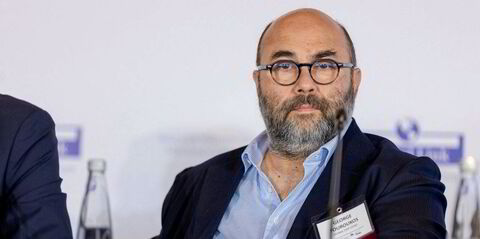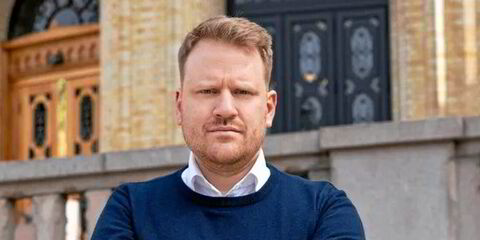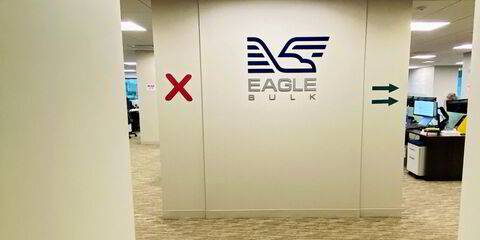Chavalit Frederick Tsao enjoys a reputation for once throwing maritime’s liveliest parties. However, the 67-year-old chairman of Singapore-headquartered Tsao Pao Chee Group has been largely absent from Asian shipping’s social scene of late.
The leader of a conglomerate that until April was known as IMC Pan Asia Alliance Group, the parent of Singapore-based IMC Shipping — has had good reason for his absence. He has been busy trying to save the planet.
Sustainability through well-being is Tsao’s mantra today and has been so for the past two decades.
Tsao’s leadership journey
Tsao has redirected his focus to address pressing global issues, leading his company, Tsao Pao Chee Group, toward a new vision centred on sustainability and ethical responsibility.
Meditation sparked Tsao’s journey to explore his inner self, leading to significant personal growth.
He identified humanity’s challenges in sustainability, globalisation and technology, which he views as relational issues rooted in a crisis of ethics, morality, integrity and trust
“In the modern world, people tend to search for truth externally, by looking outwards. However, ancient cultures, especially Chinese culture, teach us that self-cultivation is an inward journey.
IMC Pan Asia Alliance rebranded as Tsao Pao Chee Group on 12 April.
The new branding marks a return to the original tradename, Tsao Pao Chee, which dates back about 120 years to the Qing dynasty.
Tsao Pao Chee was founded by Tsao Wa-Chang in the late-1800s. Over four generations and nearly 120 years, the company evolved from a traditional shipping enterprise into a multinational business.
Current chairman Chavalit Frederick Tsao is transforming the company into a purpose-driven profit business with a mission to serve well-being and create wealth at the same time.
“This is more than just turning a page. We need to go back to finding our roots, our own culture, our own morality and ethical traditions.
“Therefore, I decided to return to our roots and bring back the original trade name used by my great grandfather because that has always been our true brand,” said Tsao.
“When we look inward, we can discover that everything we need in life is already within us. Our inherent nature is love and connection,” he said. “We are all part of an interconnected system.”
And he perceives that system as ailing.
“Climate change … is a human-created doomsday syndrome, not some comet that hit us, not something that blew up from underneath us like a volcano,” he said.
He argues that the global economy, based on the extraction and exploitation of the earth’s resources and driven by corporate greed, has brought the earth to the brink.
“There is no time left for thought leadership or argument on the need for action because this is not decades away. This is just years away,” he said.
Tsao advocates for a new era of rejuvenation and revitalisation to heal our ailing way of life.
“When the system of life is healthy, it is called well-being. We cannot have well-being just by ourselves, because we cannot be well until our family, community, society and external environment are well.”
Tsao acknowledges the irony in his remarks, considering that during the 1990s, under his leadership, IMC underwent a significant transformation from a shipping company to a sprawling conglomerate encompassing coal mines, palm oil plantations, oil and gas ventures, shipyards, ports, and a fleet of oil tankers and bulk carriers.
Yet, he asserts that his philosophy of well-being now shapes every facet of his leadership at Tsao Pao Chee Group.
Ownership of the company has transitioned from being held by the Tsao family to a trust. Under the family’s guidance, the trust is dedicated to ethically managing the allocation of entrusted resources.
Offloading unsustainable ventures
He said Tsao Pao Chee has been shedding business ventures deemed unsustainable and not in line with its new vision of well-being,
“We’ve been deconstructing, selling the iron ore business, selling coal business, selling the palm oil business, selling, selling, selling,” he said.
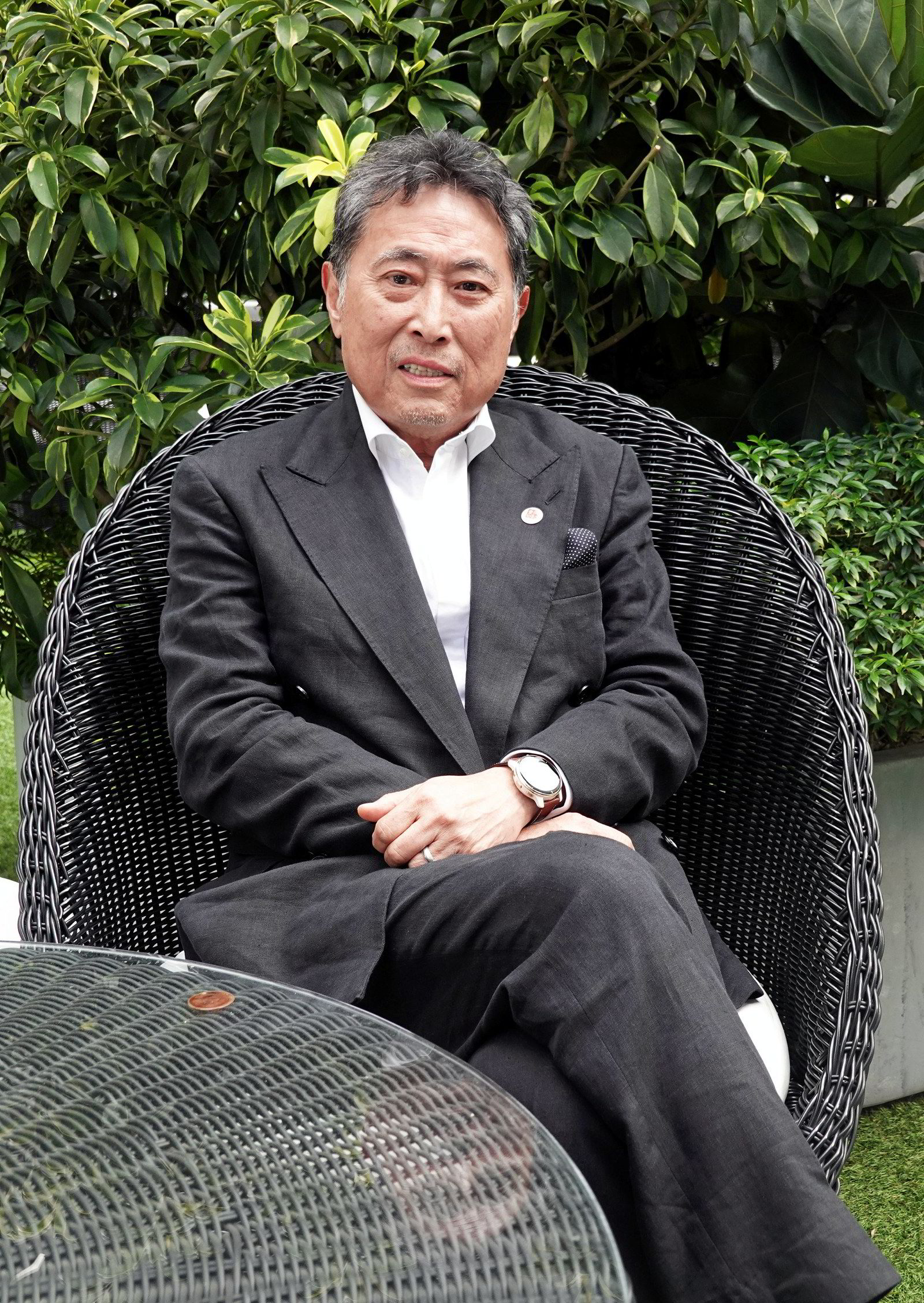
Now, he is directing investments towards sustainable ventures.
He cites, as an example, the regeneration project of a 6,000-hectare former palm oil plantation the company owns in Indonesia, creating what he expects will be a new development model.
“Palm oil is not sustainable, so we got out. We kept some of the land, putting it into a nonprofit called the Restore Nature Foundation. We hope to find a solution for the restoration of forests and new farming to find a sustainable alternative to palm oil,” he said.
According to Tsao, the land was put into a nonprofit because there is no business model yet. But, when the project proves successful and profitable, he can offer producers a validated alternative business model to palm oil.
Octave Institute is the business vertical that Tsao created for Tsao Pao Chee to develop the “well-being and happiness economy” by “fusing wisdom from Eastern practices with modern science”.
The group’s investment arms have already redirected $320m to invest in the impact and well-being sectors.
Highlighting examples of Octave’s projects, Tsao emphasises the outdated construction processes currently in use, which he asserts contribute significantly to global pollution.
“We are looking at new construction methods, new materials and environmental technology,” Tsao said. He expects that as the world moves towards a new, sustainable economy, there will be a global construction boom on a major scale.
Investment in sustainable food production
Octave is also investing in the food production and farming sectors as Tsao anticipates major food system changes towards a sustainable plant-based diet.
“When we think about the food system, we have to look at things such as how can we use the sea better — how we can farm the ocean in a way that also replenishes the nutrients and processes carbon. Instead of eating fish protein, how about another kind of sea protein like seaweed?” he said.
Tsao said biotechnology is transforming farming and the way food is produced.
Tsao Pao Chee Group is also transforming its approach to corporate philanthropy by incorporating it into its business culture.
Three nonprofit units have been established to achieve this: Octave Institute, No 17 Foundation and Restore Nature Foundation, which focus on restoring human relationships, collaboration and nature, respectively.
The Octave Institute is billed as “the new school of life and living, the new living cultural community and the new lifestyle in well-being and wellness industry in the 21st century”. The institute offers customised organisational development, talent management and coaching programmes, ready-to-go leadership training workshops and other resources to shift consciousness and incorporate mindful living into organisations.
No 17 Foundation brings together stakeholders to create a sustainable economy that benefits everyone. The foundation provides a platform for an alliance of businesses and organisations collaborating to support impactful causes in sustainability. At its core are the United Nations’ 17 sustainable development goals and its stated aim is to shift humanity’s consciousness towards a flourishing life in the well-being era.
No 17 Foundation is one of the key voices and core members of the Philanthropy Asia Alliance. The foundation has pledged around $700m under the alliance to catalyse solutions for humanity’s shared sustainability challenge.
The Restore Nature Foundation’s mission is to champion causes that bring awareness of human-integrated nature with the natural world and “infuse energy into projects that heal our planet”.
Its projects highlight the integrated nature of the different ecosystems around the world while inviting stakeholders to take part in its restoration and preservation.
He believes new technologies will have a positive role in transforming the entire global economy, and with that will come major capital infrastructure redevelopment across the world as new green transport networks are built.
“The whole way we live is going to transform,” he said.
Octave is also developing new ways communities can live in sustainable habitats in China.
Tsao hopes these models can be replicated elsewhere.
“This is not idealism. It’s reality. It’s a new business model. It is a new era. It is already happening. I can’t do it all by myself, but what I can do is provide a viable model and hope others will join me,” he said.
Tsao’s focus on wellness and impact investments has led to his stepping back from the day-to-day running of the IMC Industrial Group, Tsao Pao Chee’s shipping arm that has a portfolio comprising dry bulk and tanker shipping, shipyards, port operations and logistics.
Trusted lieutenants run these companies, although recent departures of senior executives at IMC Shipping have led to questions being raised about its future direction.
Tsao vehemently dismisses any suggestion that he might be losing interest in shipping. IMC is here to stay, he said.
“I still love this industry. I’ve just been really busy because I have a bigger job to do,” he explained.
Shipping’s highs and lows
“Shipping is an opium. You can do other business, but this opium is addictive. You taste it and you cannot get out. The shipping industry is exciting in one way, and boring in another. But, its unpredictable moments keep you on your toes.”
In recent years, IMC has shifted towards an asset-light model, preferring to charter in tonnage rather than build or buy.
Shipping data provider VesselsValue lists the company with an owned fleet of five supramax and handysize bulkers and 21 product tankers, and no ships on order.
Tsao said this is because shipping is going through changes that will only accelerate with the transition to a more sustainable global economy.
New materials, new energy sources, new trade patterns moving north/south, not east/west, carbon credits, a greater focus on supply security, a shift towards sustainable local production and anti-consumerism will all lead to a drop in demand for shipping, he predicts.
“Energy is 60% of the fleet. That is going to change. We are going to localise into alternative energy more and more, and perhaps we’ll find a way to be more safely doing nuclear. All these are in the development stage.
“Solar and wind are viable and cheaper at current oil and carbon prices. It is just a matter of scaling. There are some restrictions on infrastructure for scaling. Everyone is talking about financing this infrastructure boom except shipping people.
“Big things are going on around the world that shipping people need to wake up to,” he added.
Ordering newbuildings remains firmly off the cards.
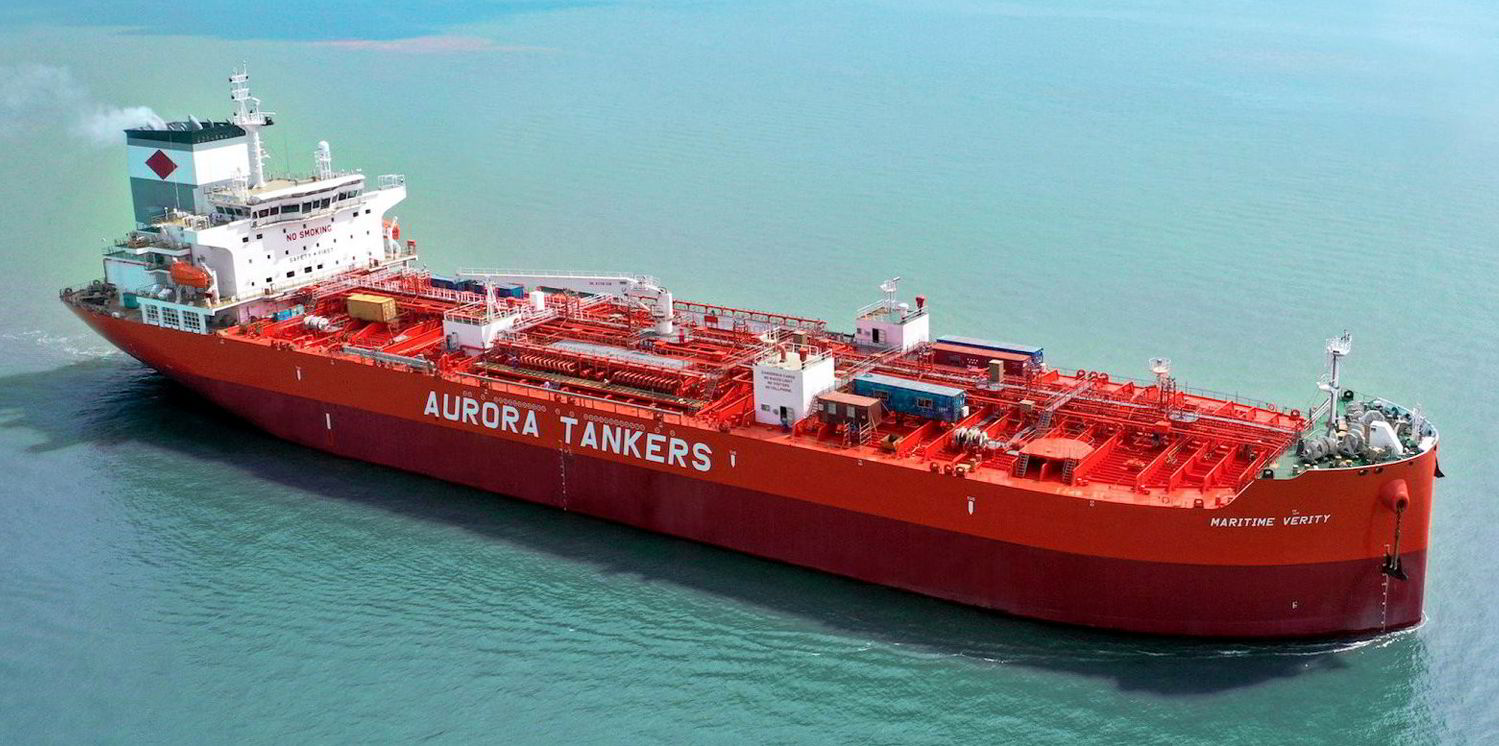
“Raw material sources are changing, so how can you order if you don’t even know what you are going to be moving? Even chemicals are shifting to organic chemicals, so what kind of coating and size of ship will you need? And even now, there is uncertainty on what kind of engine you install,” Tsao said.
Despite these comments, Tsao remains optimistic about shipping.
“Maritime trade will continue as long as 70% of earth is covered by water,” he said.
“A new maritime industry needs to be created. I urge people to rethink deeply our commitment to the industry and think about its future, perhaps putting our minds and resources together to create it.
“If we care about the maritime industry, we should express a little love for it,” he said.
